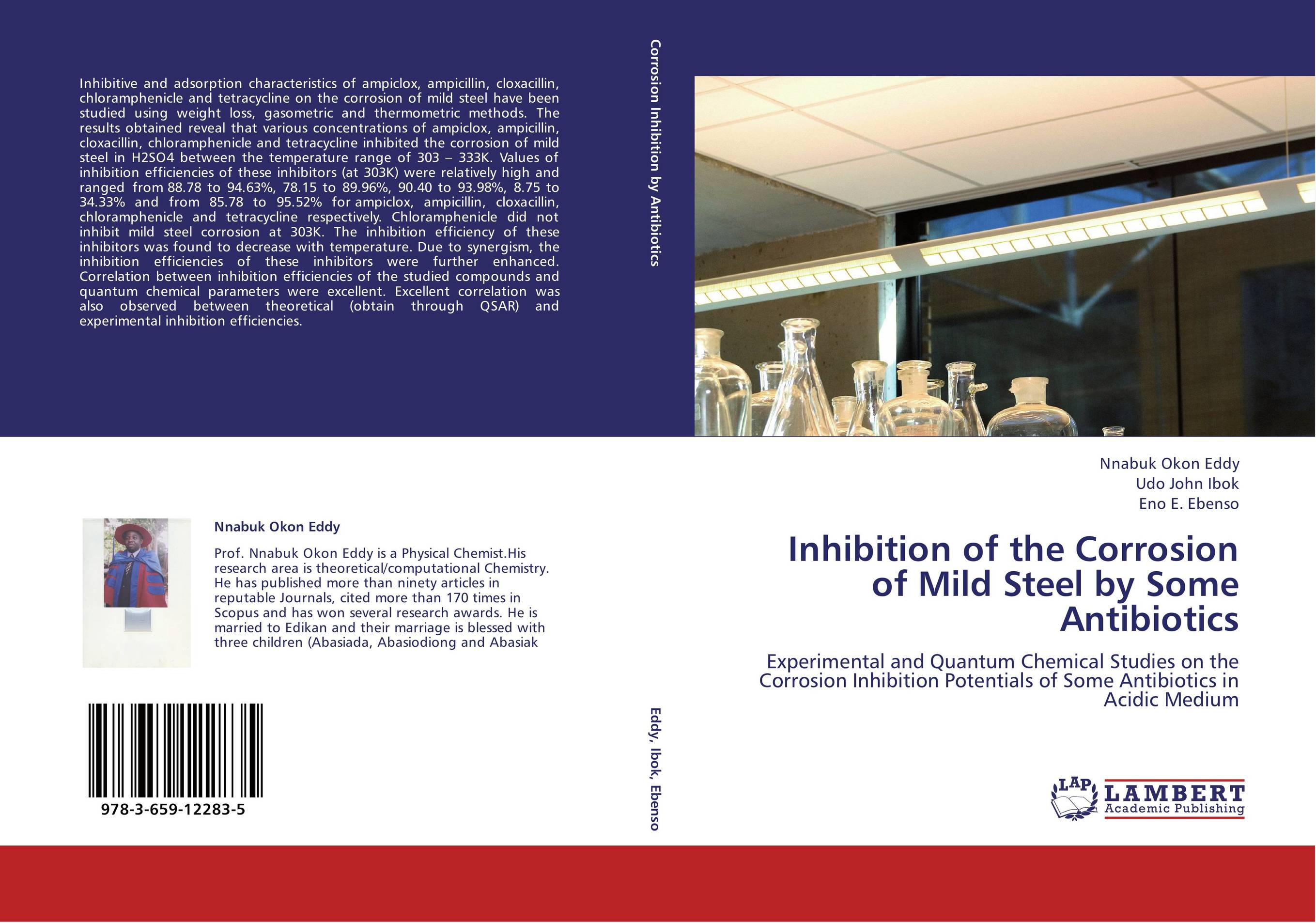| Поиск по каталогу |
|
(строгое соответствие)
|
- Профессиональная
- Научно-популярная
- Художественная
- Публицистика
- Детская
- Искусство
- Хобби, семья, дом
- Спорт
- Путеводители
- Блокноты, тетради, открытки
Inhibition of the Corrosion of Mild Steel by Some Antibiotics. Experimental and Quantum Chemical Studies on the Corrosion Inhibition Potentials of Some Antibiotics in Acidic Medium

В наличии
| Местонахождение: Алматы | Состояние экземпляра: новый |

Бумажная
версия
версия
Автор: Nnabuk Okon Eddy,Udo John Ibok and Eno E. Ebenso
ISBN: 9783659122835
Год издания: 2012
Формат книги: 60×90/16 (145×215 мм)
Количество страниц: 304
Издательство: LAP LAMBERT Academic Publishing
Цена: 54310 тг
Положить в корзину
| Способы доставки в город Алматы * комплектация (срок до отгрузки) не более 2 рабочих дней |
| Самовывоз из города Алматы (пункты самовывоза партнёра CDEK) |
| Курьерская доставка CDEK из города Москва |
| Доставка Почтой России из города Москва |
Аннотация: Inhibitive and adsorption characteristics of ampiclox, ampicillin, cloxacillin, chloramphenicle and tetracycline on the corrosion of mild steel have been studied using weight loss, gasometric and thermometric methods. The results obtained reveal that various concentrations of ampiclox, ampicillin, cloxacillin, chloramphenicle and tetracycline inhibited the corrosion of mild steel in H2SO4 between the temperature range of 303 – 333K. Values of inhibition efficiencies of these inhibitors (at 303K) were relatively high and ranged from 88.78 to 94.63%, 78.15 to 89.96%, 90.40 to 93.98%, 8.75 to 34.33% and from 85.78 to 95.52% for ampiclox, ampicillin, cloxacillin, chloramphenicle and tetracycline respectively. Chloramphenicle did not inhibit mild steel corrosion at 303K. The inhibition efficiency of these inhibitors was found to decrease with temperature. Due to synergism, the inhibition efficiencies of these inhibitors were further enhanced. Correlation between inhibition efficiencies of the studied compounds and quantum chemical parameters were excellent. Excellent correlation was also observed between theoretical (obtain through QSAR) and experimental inhibition efficiencies.
Ключевые слова: corrosion, Inhibition, quantum chemical study



